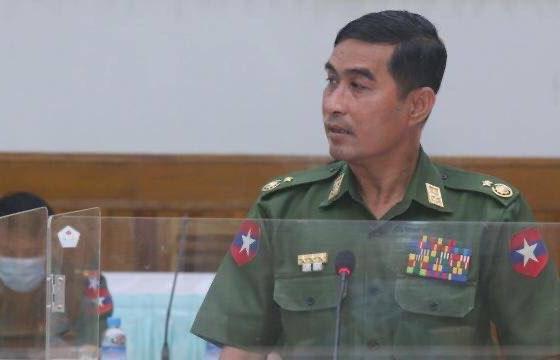The Amsterdam-based Transnational Institute (TNI) Drugs and Democracy Programme has released a report saying that the ongoing peace process raises hope for more effective drug policies ,
 |
| Tom KramarTom Kramer, the author of the TNI report |
It says that the government has initiated a consultative process with the relevant government ministries, United Nations agencies, and local and governmental organisations to discuss a draft proposal that would revise the outdated and ineffective 1993 Narcotic Drugs and Psychotropic Substance law.
On 21-22 January, for example, the Central Committee for Drug Abuse Control (CCDAC), Burma’s top drug enforcement agency, organized a workshop in Naypyitaw, which welcomed opium farmer's representatives to participate and share their viewpoints and recommendations. “The outcome of this process is still unclear, but it provides an important opportunity to make the law more humane and effective,” says the report.
Nevertheless, the Tatmadaw (military) policy of prioritising security over drug-related concerns has allowed criminal groups and drug syndicates to operate freely especially in areas controlled by the pro-government militias.
The report points out: “After decades of civil war, few of the conflict actors, including the Myanmar army, can claim to have clean hands,” as an example it says: “TNI research in Shan State, for instance, found that all parties in the conflict—including Tatmadaw units—taxed opium farmers.”
Thje report's policy recommendations include:
- Provision of voluntary treatment programs for drug users
- Decriminalization of drug use
- Expansion of harm reduction projects
- Prioritisation of alternative development programs
- Involvement of affected communities in drug policy making
“Eradication of poppy farms should not take place unless people have sufficient access to alternative livelihoods,” it urges.
It also recommends that "China’s opium substitution policy should not continue in its present form.”
China’s program in Kachin and Northern Shan states, which was reported in detail in TNI’s 2012 Financing Dispossession, focuses on large-scale mono plantations—mainly rubber—in return for credit, tax exemptions, and import quotas. The report finds this problematic and says: “However, the benefits of the program mainly go to Chinese businessmen and local authorities, rather than to (ex) poppy farmers. As a result, (ex) poppy farmers are largely losing access to land and are left to work as daily wage laborers on agricultural concessions or [forced] further into isolated areas to grow poppy.”
The 14 page Current State of Counternarcotics Policy and Drug Reform Debates in Myanmar, written by Tom Kramer, can be read at: http://www.tni.org/briefing/current-state-counternarcotics-policy-and-drug-reform-debates-myanmar







